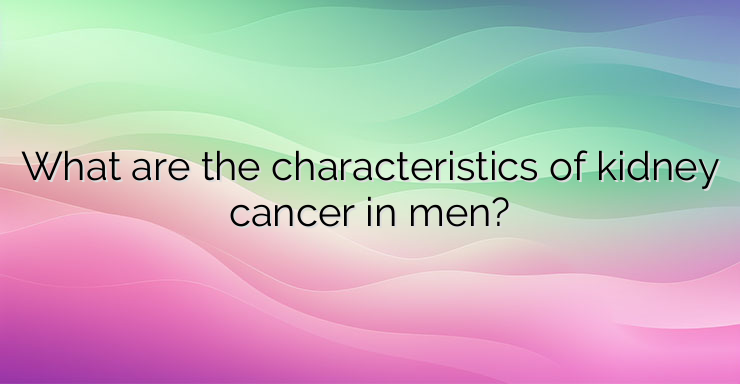What is the prevalence of kidney cancer in men? Kidney cancer is more common among men than among women. Although the symptoms and treatment options for kidney cancer are similar in both sexes, the prognosis for the condition is less good for men. According to the Centers for Disease Control and Prevention (CDC), worldwide, kidney cancer accounts for about 5% of cancers in men and 3% of cancers in women. More men than women are diagnosed with kidney cancer, and the disease is often more aggressive in men. Men tend to have larger tumors and higher grade (microscopic features) and stage (the size of a tumor and how far it has spread) cancer with less positive disease outcomes. What are the symptoms of kidney cancer in men? Kidney cancer is often asymptomatic until its later stages (stages). More than half of all kidney tumors are discovered when the patient is examined for a different reason. Symptoms of kidney cancer are similar in men and women and include: Blood in the urine; Lump or swelling in the abdomen; A mass, lump, or lump on the side or back of the lower back; Fatigue; Constant fever; Loss of appetite; Unexplained weight loss; Sensation that something is blocking the intestines; General malaise In men, the presence of varicocele (dilated testicular veins), especially on the right testicle, may be a sign of the presence of a large kidney tumor. The symptoms described above may have other causes. If a patient has one or more of these symptoms, they should see a doctor to rule out kidney cancer. What are the causes of kidney cancer in men? Kidney cancer occurs when genetic mutations cause kidney cells to grow abnormally. Cells can divide too quickly, die too slowly, or develop abnormally, making them unable to function normally. Scientists believe that mutations in the VHL gene play a role in the development of kidney cancer. Genetic mutations can have a variety of causes that cannot be determined. References: 1. Centers for Disease Control and Prevention (CDC). Kidney cancer 2. National Center for Biotechnology Information (NCBI). Pandey, J., et al. (2021). Renal cancer 3. American Cancer Society. Renal cell cancer treatment (PDQ) � patient version


Leave a Reply